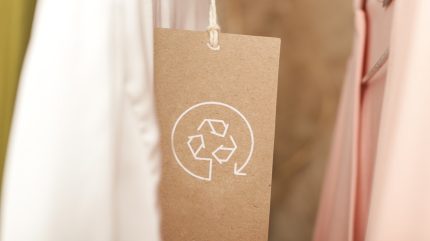
Textiles along with other sectors, which include transport, construction, agri-food, and chemicals & plastics, was selected based on the potential to stimulate economic growth, safeguard the environment, and contribute to achieving Net Zero emissions.
While addressing industry stakeholders on 27 March 2025, UK Environment Secretary Steve Reed said that the sectors were chosen by an independent Circular Economy Taskforce, convened to draw on the expertise of industry leaders, academics, and civil society representatives.
The taskforce in collaboration with businesses will formulate a Circular Economy Strategy, which is scheduled for release this autumn. This will help outline long-term regulatory roadmaps tailored for each sector and develop roadmaps to provide businesses with the clarity and guidance necessary to make informed investments for the future.
In his speech, Reed stated that this development is part of a broader strategy that encompasses leveraging the ‘Textiles 2030’ initiative.
Textiles 2030 represents the UK’s foremost voluntary programme aimed at guiding entities in the fashion and textile sector towards adopting circular and sustainable methodologies by the decade’s conclusion.
Reed said: “Moving to a circular economy is a pivotal moment for British businesses to innovate, grow and lead the world, so we can slash waste and strengthen supply chains.

US Tariffs are shifting - will you react or anticipate?
Don’t let policy changes catch you off guard. Stay proactive with real-time data and expert analysis.
By GlobalData“My vision for delivering a truly circular economy is an important step in kickstarting this path to change. That is why we are bringing together the brightest minds from industry, academia and civil society to deliver this, which won’t just clean up our streets and reduce the need for landfill and incineration, but help us cut carbon emissions, create new jobs and increase business profitability.”
The Waste and Resources Action Programme (WRAP), a charity focusing on circular economy principles, has expressed support for the government’s vision.
WRAP public sector partnerships and policy and insights head and a member of the Circular Economy Taskforce Keith James expressed anticipation for the upcoming release of the Circular Economy Strategy.
James noted that the Textiles 2030 initiative is playing a significant role in revolutionising the lifecycle of over 60% of garments entering the UK market.
He stated: “The UK is in prime position to build on these strong initiatives, and to learn from circular economies developing elsewhere in the Netherlands, Germany and Denmark.
“We welcome today’s announcement, which shows the scale of the UK’s ambition. Government, business and WRAP all want the same outcome from a circular economy – to future proof the economy with products built to last, to be used and repaired, and ultimately recycled into new products.
“Circular economy policies offer a critical boost to the UK economy of £18bn per year and will improve resilience in a world in which we can no longer rely on importing 80% of our raw materials and where economic trade shocks are more common.”



